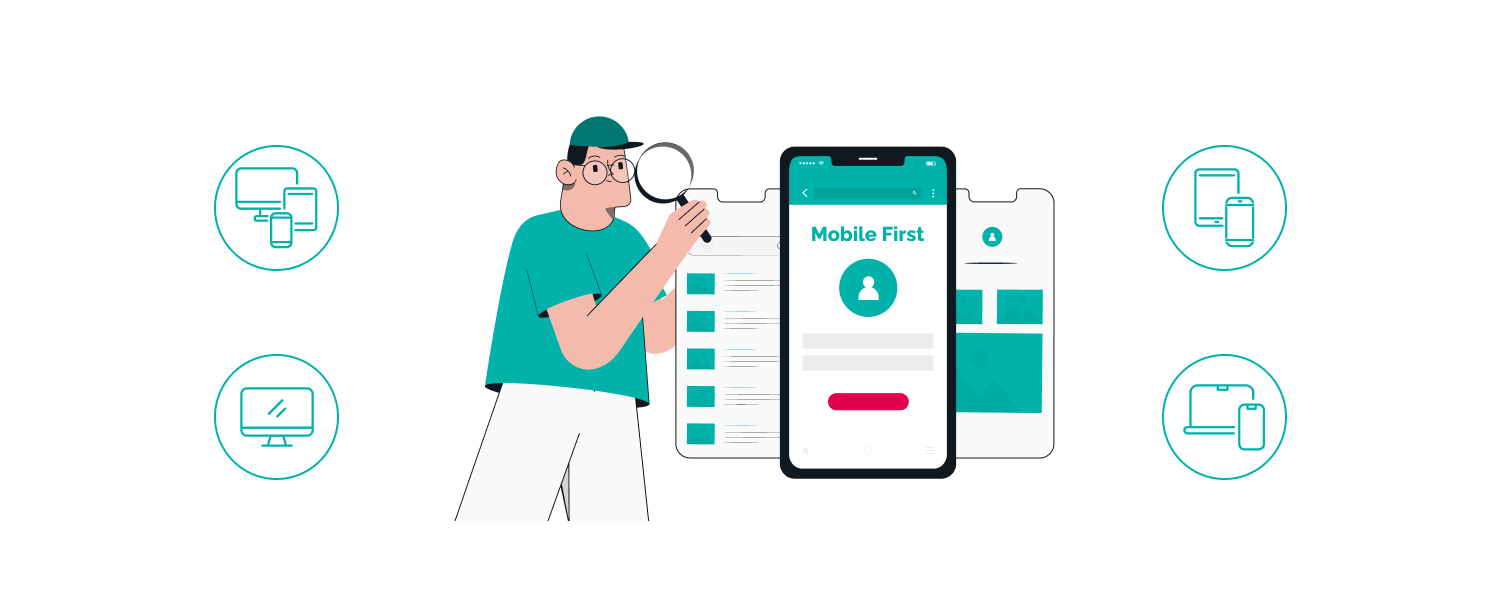
You’re lounging at a beachside café in JBR, sipping karak tea, when you spot a last-minute deal for a desert safari. You tap the link—only to face a maze of microscopic text, broken buttons, and a checkout page that flickers between Arabic and English. Sound familiar? In Dubai, where 86% of web traffic is mobile-first, clunky sites don’t just annoy users—they cost businesses millions. A 2023 study by Dubai’s Digital Government found that 61% of users abandon non-mobile-friendly sites within three seconds. But what if your site could feel as effortless as skipping the queue at Burj Khalifa’s At the Top? Let’s break down why mobile-first design is now as essential as sunscreen in July.
Dubai’s Mobile Obsession Isn’t Slowing Down—It’s Accelerating
Dubai isn’t just a global hub for luxury—it’s a mobile-first pioneer. According to the Telecommunications Regulatory Authority (TRA), 97% of UAE residents own smartphones, and 79% shop online weekly. Globally, mobile accounts for 58% of web traffic, but in Dubai, that number rockets to 91%. Why? The city’s fast-paced lifestyle demands instant access. Google’s mobile-first indexing means your site’s mobile version dictates search rankings. Translation: If your site isn’t optimized, you’re invisible to 80% of Dubai’s high-spending audience.
Pro Tip
Use CSS Grid or Flexbox for layouts. These tools adapt to screens as smoothly as the Dubai Metro glides across Sheikh Zayed Road. Fixed-width elements? Those are like trying to parallel park a Rolls-Royce in Deira’s narrow lanes—avoid them.
Why “Responsive” is the New “Outdated”
Responsive design was once revolutionary—like adding AC to an abra. But in 2024, it’s like serving lukewarm karak. Mobile-first design starts from scratch, prioritizing thumb-friendly navigation and lightning speed. Think of it as crafting luqaimat: bite-sized, sweet, and made for on-the-go.
Speed is Non-Negotiable
Mobile-first sites load in 1.2 seconds vs. 2.8 seconds for responsive sites. In Dubai, where 5G covers 90% of the city, users expect instant access. A one-second delay can slash conversions by 20%, according to du’s 2024 report.
Touch Targets Save Sales
Buttons smaller than 48×48 pixels frustrate 73% of users. Take it from Noon—they boosted app sales by 28% after enlarging their “Add to Cart” buttons. Pro tip: Use heatmaps to identify “dead zones” where users accidentally tap ads instead of your CTA.
Local Case Study
Careem reduced booking times by 40% using AMP (Accelerated Mobile Pages). Their secret? Stripping heavy JavaScript and compressing images to WebP format. Result: A 55% drop in bounce rates during peak hours.
The Cost of Ignoring Mobile-First? AED 50,000 and Counting
A desktop-centric site isn’t just inconvenient—it’s a financial black hole. Post-launch fixes cost triple compared to building mobile-first from day one. Worse, Dubai’s Digital Laws mandate ADA compliance for mobile sites. Fail this, and fines can hit AED 50,000.
SEO Hack
Use Schema markup for keywords like “luxury hotels Dubai” or “dubai mall offers.” Google prioritizes mobile-optimized sites, boosting visibility by 50% in cutthroat markets like Dubai’s tourism sector.
Designing for Dubai’s Late-Night Scroll Culture
Dubai residents average 6.2 hours daily on mobile apps, with peak usage from 9 PM to midnight. Capitalize on these habits:
Vertical Video Dominance
TikTok and Snapchat reign supreme. Mimic Atlantis Dubai’s shoppable hotel tours—vertical videos with instant booking buttons.
Local Payments = Trust
Optimize for Apple Pay, Careem Pay, and Emirates NBD. A 2023 Souqalmal study found 48% of cart abandonments stem from payment gateways lagging on mobile.
Offline Mode Wins Loyalty
Even in Dubai, metro dead zones exist. Use service workers for offline caching—a trick Talabat used to retain 35% more users during network outages.
Editor’s Note
As highlighted by www.too.ae, adding a floating WhatsApp button (used by 89% of UAE shoppers) can lift conversions by 33%.
Tools Even Your Dubai Colleague Would Approve Of
Google Lighthouse
Aim for a performance score above 90. Sites scoring 90+ keep users engaged 4x longer, per du’s 2024 report.
Figma’s Arabic UI Kits
Pre-built RTL (right-to-left) templates ensure seamless Arabic/English transitions. Bonus: Use Dubai’s official font (Dubai Font) for familiarity.
Hotjar Heatmaps
Uncover hidden pain points. One Dubai real estate site discovered 60% of users missed their “Contact Agent” button—now it’s neon green and impossible to ignore.
Pro Trick
Compress hero images with Squoosh.app. It’s free and trims load times by 1.4 seconds—enough to keep a impatient shopper from bouncing.
Cultural Pitfalls: When Gold Becomes Gaudy
Emiratis love opulence but hate clutter. Use whitespace like the desert horizon—vast and intentional. Avoid red-green combos (common in color blindness) and use gold accents sparingly. Overdo it, and your site feels like a Karama market stall.
Local Example
Namshi redesigned their app with larger Arabic typography and high-contrast palettes, cutting returns by 22%.
The Foldable Future is Here—And Dubai’s Leading It
Samsung’s Galaxy Z Fold 5 is a hit in Dubai. Design for foldables with fluid grids and SVGs. For bonus points, adopt PWAs (Progressive Web Apps)—they work offline and load 2x faster, ideal for Dubai’s fast-paced lifestyle.
Editor’s Insight
For more strategies, explore www.too.ae’s guide on optimizing for du’s 5G network. Remember, in Dubai’s market, mobile design isn’t just tech—it’s tariffa (luxury service).
Final Thought: Mobile-First is Your Digital Burj Khalifa
Think of mobile-first design as the foundation of your digital presence—solid, iconic, and built to impress. Test with real Dubai users (think: time-poor expats, Arabic speakers), iterate relentlessly, and prioritize performance. Because here, where 78% of luxury purchases happen via phone, your mobile site isn’t just a tool—it’s your 24/7 salesforce.
Pro Reminder
As the team at www.too.ae often says, “If your site stutters on a AED 800 Nokia, it’s broken.” Optimize for low-end devices, and watch engagement soar higher than the Burj Khalifa’s spire.
